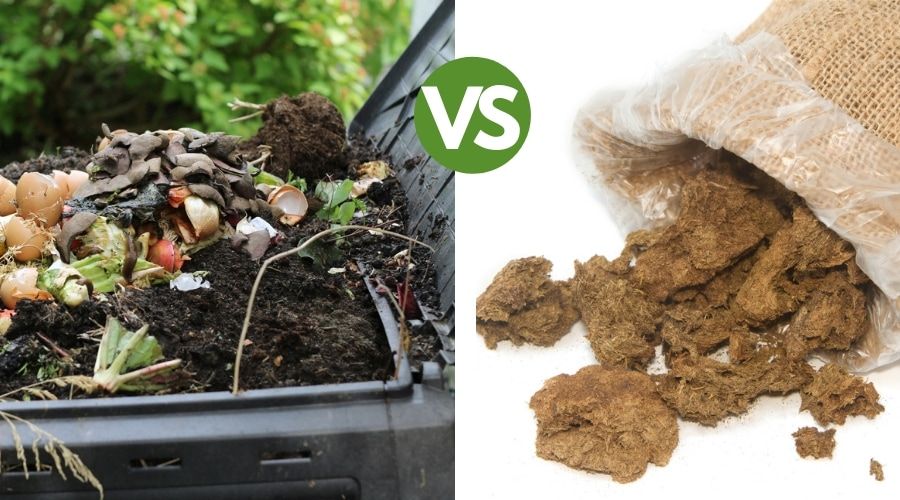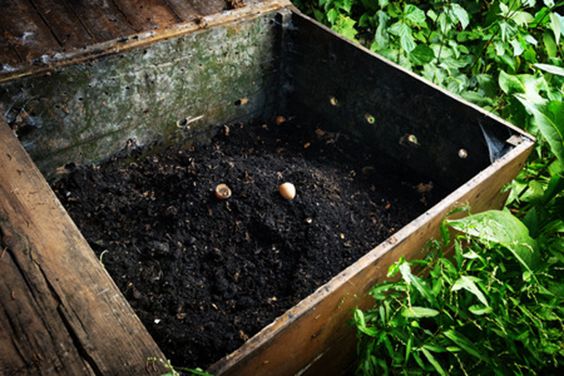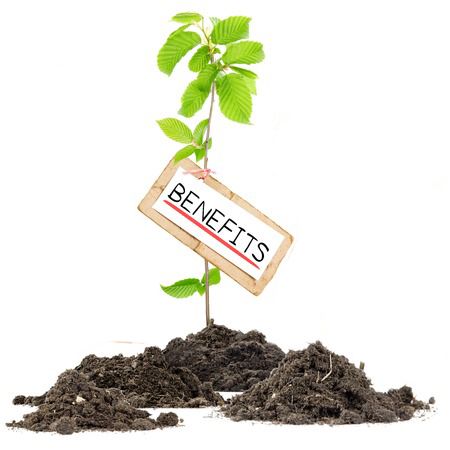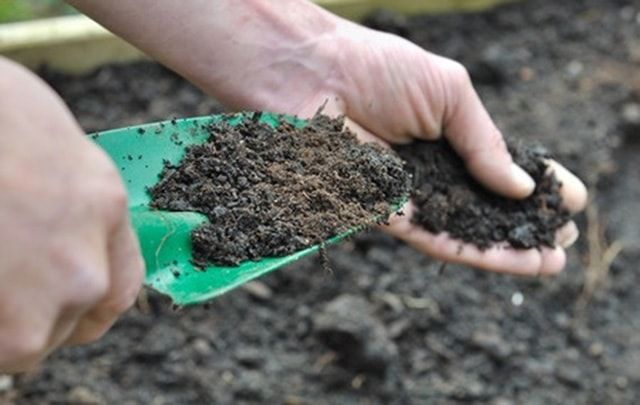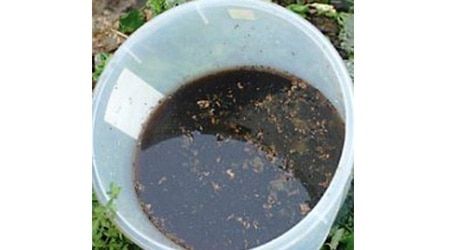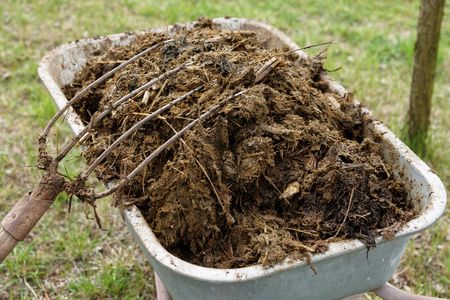Spring is on the horizon, and the time has come to think about feeding your plants. Providing nutrients to your soils as perennials come out of dormancy is the best time to consider nutrient application, as well as amending your vegetable garden soils in preparation for spring planting. Many people prefer an organic, or natural process of fertilization, and adding compost or manure to your soils is a fabulous alternative to synthetic plant foods.
Both compost and manure feed your soils and help amend them by retaining moisture, and provide conglomerates for improved oxygen flows, as well as providing the many nutrients plants need to thrive. But when faced with choices, which is best for long term soil health? Compost or manure?
*You might also like: Massive List of Things You Can Compost
COMPOST VS MANURE COMPARISONS
|
Model |
Facts |
Benefits 1 |
Benefits 2 |
Pros/Cons 1 |
Pros/Cons 2 |
|---|---|---|---|---|---|
|
Compost |
Organic |
Easy to make and gets rid of landfill waste |
Amends soils for moisture and drainage |
Plants benefit from added nutrients |
Stabilizes pH |
|
Manure |
Allow to decompose before use |
Not as readily available, although it can be purchased in stores |
Amends soils for moisture and drainage |
Good source of plant nutrients |
May have weed seeds and salts present |
COMPOST
PROS
- Feeds the Soils
- Better Moisture Retention
- Builds Disease Resistance
- Organic
CONS
- Expensive to purchase
- May be Odorous
- Proper Creation Takes Time
MANURE
PROS
- Amends Soils
- Can Be Added to Compost
- Helps Prevent Nutrient Leech
- Organic
CONS
- Fresh Manure Can Be Harmful
- Built Up Manure Can Contain Parasites
- Medicines and Chemicals Can Stay in Manure From Treated Animals
COMPOST: WHAT’S THE BIG DEAL?
Compost is the naturally occurring organic waste of the decomposition process. It occurs around us at all times through the breakdown of dead grasses and leaves, woody materials, and other elements found in the great outdoors. It is even occurring in the soils under your feet as mixed in organics are worked over by bacterias and microbes to release nutrients.
You can mimic this process in your own backyard (or even kitchen counter) to create the rich, loamy fertilizer that gardeners everywhere want to get their hands on to feed their soils for increased vegetative health. Coffee grounds, egg shells, vegetable and fruit waste, and even napkins, are only a few of the many products you can add into your compost bin to feed the decomposition of organic matter into a usable substance.
BENEFITS
Compost not only improves soil structure through increased water and oxygen permeability, it helps resist compaction and increases soil binding properties, which reduces erosion. It also stabilizes pH and helps to neutralize soils which aide in the resistance of PH change, and can change how plants uptake nutrients from the soil. This is an important concept to note since plants uptake nutrients from the soils through their roots, so it follows that healthy soils equal more quality nutrients for plant use.
Because of the bacteria present in decaying materials, antibacterials are also present in compost due to the breakdown of organics through the digestive systems of certain microorganisms. These help break down toxins, as well as create properties that inhibit soil borne diseases.
Take a look at some recommended tumbler composters here.
APPLICATION
Although compost can be applied in many ways to your soils, you’ll want to make sure you have a true compost, and not a lot of matter still in the early stages of decomposition. Even though they will still continue to decompose if that is the case, the process put off a lot of heat which can be very harmful to your plants.
Compost that is ready for garden use will be a dark crumbly and soft (loamy) material, and smell earthy, not putrid or like sulfur. The decomposition process will still continue through microbial and bacterial breakdown of small materials after application, but this is the part you want to take advantage of in your garden due to nutrient releases that occur.
SOIL AMENDMENT
The most popular way to apply compost to your soils is through soil amendment. Amending your soils refers to anything you mix into your soils to change the overall composition and consistency to improve upon it’s overall health. After all, the most important part of your plant growth is the soil it is planted in.
To mix your compost, apply 2 to 3 inches of compost into the top 6 to 8 inches of soil per square foot. Be sure to use well decomposed soils and mix well. You may want to use less for sandy soils, and more for clay soils. Adding finely chopped leaves to make a leaf compost produces a fine, crumbly humus as well, which is rich in carbon matter for soil health.
COMPOST TEA
You can also create a compost ‘tea’ by soaking compost in water for 3 to 4 days and straining out the solids. Once you mix it with a 10 to 1 ratio of water, it is ready to use as part of your watering. This is a great way to apply it to lawns and large trees and shrubs.
CONCERNS
The decomposition process can, at times, be a little stinky even if the final product doesn’t have anything but an earthy smell. Poorly turned compost can also give off a putrid smell due to poor aeration too, so be sure to mix it regularly for even decomposition.
Too many ‘green’ materials added into the pile (like green grass) can cause excess nitrogen and will give off an ammonia smell. You will want to balance that out with ‘brown’ materials, like shredded paper, wood chips, and napkins before application as too much nitrogen can cause issues with plant growth.
MANURE: STINKY SOLUTION?
Manure, the byproduct of your animal’s food (as in what goes in, must come out) sure can be stinky, when fresh. But when left to decompose, or dry out in the sun, it doesn’t smell any different than any other composted organic material. Although fresh manure CAN be used in the garden, high nitrogen levels are best left to nature for awhile before application in order to avoid ‘burning’ or overapplication of any one nutrient at a time in relation to your vegetation.
When used in soil amendments (similar to compost) look for what comes from your basic farm animals: such as cow manure, chicken manure, horse manure, and goats, rabbits, sheep, etc… and NOT dogs and cats, or other meat eaters, as the waste is not as nutrient rich, nor does it contain the organic materials from feed that will continue to break down over time. Furthermore, color additives and synthetics found in their food isn’t anything you would want to add into your garden.
BENEFITS
I’ll admit that this is my go to for soil amendment since I keep horses and well decomposed manure is always on hand. Manure, like compost, is comprised of a LOT of organic materials that are also high in nitrogen due to passing through the guts of (sometimes) large animals.
By adding manure to your soils you increase the organic component, increase moisture retention, and improve upon drainage. This sounds much like compost doesn’t it? And that’s because it essentially does the same thing as compost: improves soil. Not all manure is created equal, however, and all animals have a different N-P-K content (Nitrogen, Phosphorus, Potassium: macronutrients important for plant growth) so you need to mix wisely.
APPLICATION
Manure is best used when well decomposed and used as a soil amendment as described above under compost. Mixed into the soils, manure adds nutrients and helps bind sandy soils, while increasing drainage in clay soils.
Some of you may be wondering if adding manure directly to compost is simply an added benefit, and to answer that question: yes, it most certainly is. Although manure can be used as a stand alone as well (as I can personally attest to) it is higher in nitrogen. And I did error in mixing manure into the vegetable garden at too high a rate once, which resulted in huge, green, leafy stems and vines. Luckily here in the Southwest we have a long growing season and as the nitrogen became less scarce through plant growth, the plants then gave an abundance of fruits as well.
*You might also like: Mushroom Compost Good for Tomatoes?
CONCERNS
Applying manure when too ‘fresh’ can be a concern, as mentioned above, due to the high amount of nitrogen present. Too much nitrogen results in big, green leaves, and very little to no flowers and fruits (as I discovered). When fresh it also can dehydrate your plants quickly, and not to mention, WILL smell at this stage.
Manure can also harbor parasites, such as e.coli, and tapeworm that can infect humans. Although the risk is incredibly low, the longer your manure sits before use, the better chance these pathogens will be killed off. Salts may also be present due to feed, but again work out though prolonged exposure to the elements.
Weed seeds from animal’s feed may be present and could take seed in your garden, even after being passed as waste. This is why there are many restrictions on animals that are grazed on state and federal lands: to avoid spread possible invasive, non-native species.
YOUR BEST CHOICE EXPLAINED
Although I am a HUGE fan of both, if you can only make one choice, compost truly is your best bet because you definitely have more control over its creation, and will have a more varied nutrient base from which your plants can pull from. It amends soils, and continual microbial processes provides further longevity to your soil health.
To be completely honest though, compost mixed with manure (literally create your compost with manure as one of your additives) is your absolutely best choice. You get the best of both worlds in this mixture, and the results yield a rich, loamy organic substance to feed your soils.

